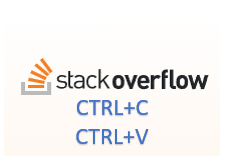Something I have been telling to many of my younger colleagues and mentees: “become an expert”. If you don’t know exactly where your heart lies, just pick up the thing that feels the most appealing at this moment in time and jump into it.
From our educational system, the push has always been to form all-rounders. Students who score well to average on all disciplines. Which is still a good thing at a young age but does not work going into the industry at a later age.
The industry needs experts, although in the software industry people still ask for generalist and full-stack programmers. To be clear about it: this is foolish. You need a generalist if you don’t know what you are doing and you want/hope this someone will fix all your problems. On the other hand, if you know what you’re doing you will be searching for experts.
Plan – Manage your project
You know what you’re doing if you know when the expert needs to come in and what the expert needs to do. In other words having a plan, a clear goal, and all prerequisites in place so that the expert can do his work. This way of working is much more efficient and cheaper than hiring someone and letting him swim and hoping for the best possible outcome.
Stack overflow programmer
I see a lot of programmers copying out of stack overflow directly into their code base and hoping that it works: programming == stack overflow. As this might work for a while, you don’t learn anything from it. You don’t learn frameworks, the reasons behind a code line, the options you have, or tradeoffs. Basically, you fix the problem but you don’t become an expert. This level of programming of “StackOverflow programming” is actually easily achieved hence it is not very valuable for the industry.
A better way to approach it and upgrade your value to the industry is to focus on a framework and deep dive into it. Get to know how a framework operates, why it operates this way, and how to use the tradeoffs within. Focus on one framework, investigate the principles on which it stands, you will come to see that these principles are reused over and over again, making it easier to jump to other frameworks if necessary but it will also show that all of these frameworks are actually more of the same, thereby making them de-facto not interesting.
You can apply it to frameworks but it holds true for all kinds of tech: front-end frameworks, methodologies, ORM, CRM, programming languages, …..

Be First to Comment